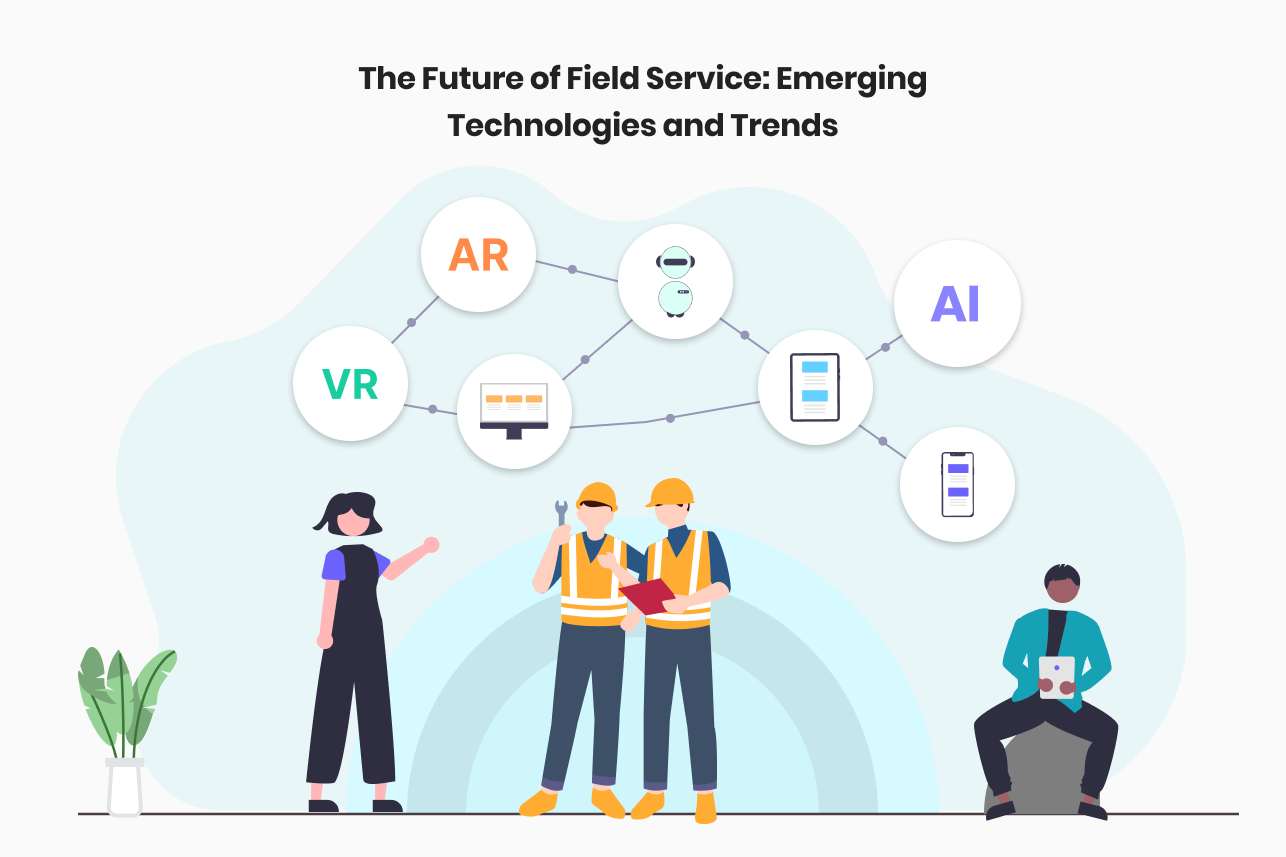In today’s rapidly evolving landscape, the future of field service is being reshaped by emerging technologies and innovative trends. From artificial intelligence to the Internet of Things (IoT), the field service industry is undergoing a profound transformation. Let’s delve into the key developments driving this evolution and explore the promising avenues ahead.
The traditional paradigms of field service are giving way to a dynamic era propelled by advanced technologies. One of the pivotal shifts defining the future of field service is the integration of emerging technologies into everyday operations. These technologies are revolutionizing how organizations deliver services, interact with customers, and optimize their workflows.
Emerging Technologies
At the forefront of this revolution are emerging technologies like artificial intelligence (AI), machine learning (ML), and augmented reality (AR). AI-powered algorithms are empowering field service professionals to predict equipment failures before they occur, thereby enabling proactive maintenance strategies. ML algorithms, on the other hand, analyze vast amounts of data to identify patterns and optimize service schedules, leading to greater operational efficiency.
AR, another game-changing technology, is revolutionizing remote assistance and training in the field service domain. Technicians equipped with AR-enabled devices can access real-time guidance, overlaying digital information onto physical equipment, thereby enhancing troubleshooting capabilities and reducing downtime.
Field Service Trends
Alongside emerging technologies, several trends are shaping the future landscape of field service. One such trend is the shift towards outcome-based services, where providers are not just selling products but guaranteeing their performance and uptime. This model incentivizes proactive maintenance and fosters long-term partnerships between service providers and customers.
Moreover, the rise of predictive analytics is enabling organizations to anticipate customer needs and deliver personalized services. By analyzing historical data and customer behavior, field service providers can tailor their offerings, leading to higher customer satisfaction and loyalty.
Additionally, the proliferation of connected devices and IoT sensors is creating a wealth of data that organizations can leverage to optimize their operations further. These devices enable remote monitoring, predictive maintenance, and real-time insights into equipment performance, revolutionizing asset management and service delivery.
Future of Emerging Technologies
As we peer into the future, the convergence of emerging technologies holds immense promise for the field service industry. The integration of AI, IoT, and AR into cohesive systems will enable autonomous field service operations, where machines diagnose, repair, and maintain equipment with minimal human intervention.
Furthermore, advancements in robotics and drones are poised to redefine field service workflows, especially in hazardous or hard-to-reach environments. These autonomous agents can perform inspections, deliveries, and maintenance tasks with precision and efficiency, augmenting human capabilities and improving safety.
In conclusion, the future of field service is being shaped by a convergence of emerging technologies and transformative trends. By embracing innovation and staying ahead of the curve, organizations can unlock new opportunities for efficiency, agility, and customer satisfaction in the dynamic field service landscape.
